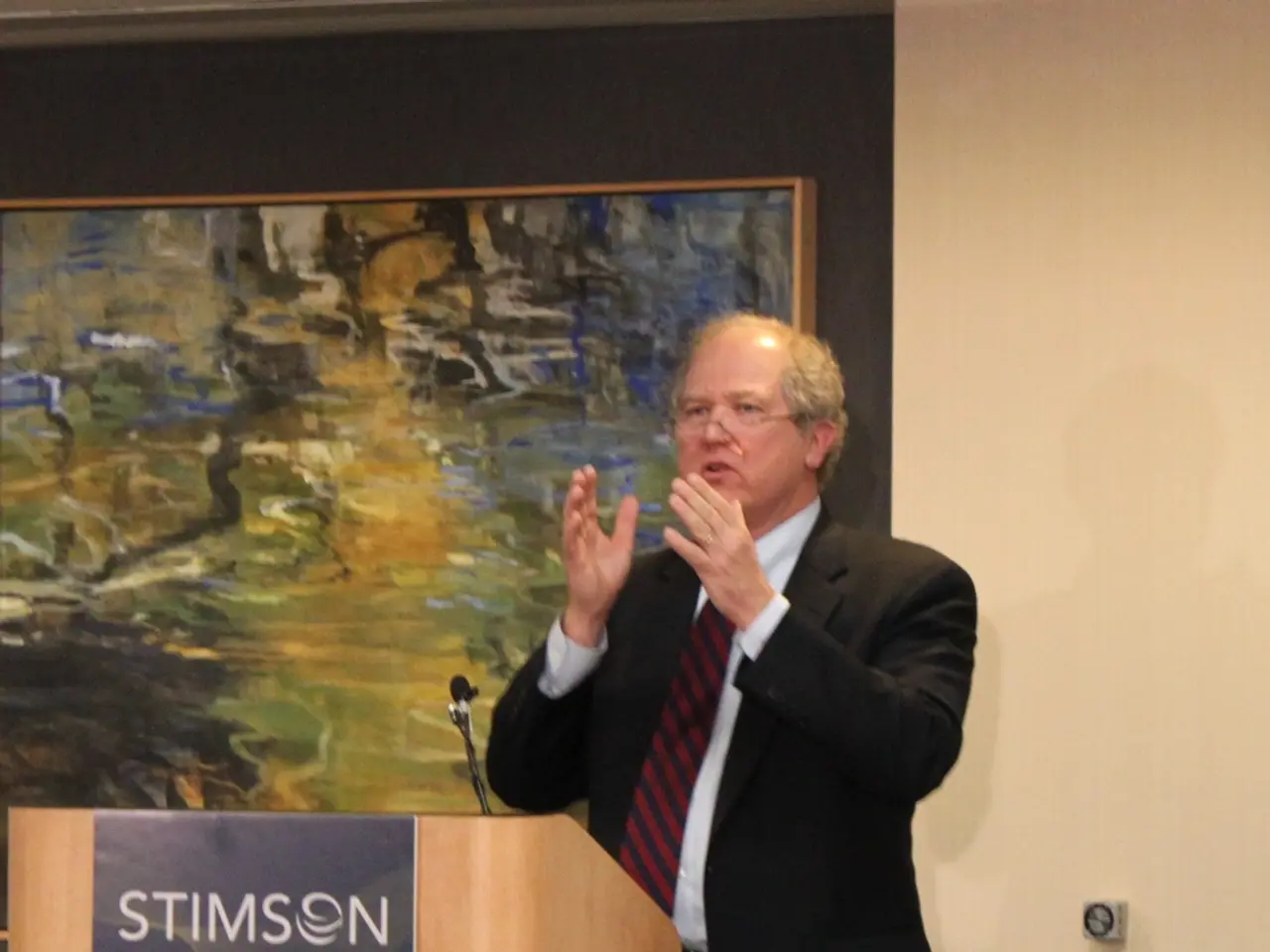Burning Issue: Coalition in Hot Water Over Energy Tax Snafu
Union and SPD are butting heads over proposed electricity tax
It's a powder keg situation. The black-red coalition, a marriage of CDU/CSU and SPD under Chancellor Friedrich Merz, is teetering on the brink of broken promises. The issue at hand? A reduction in the energy tax for consumers, a key point in the coalition agreement, that seems to have been left out of the draft budget for 2025 and 2026, despite clear negotiations[1].
This omission has set off a firestorm of criticism. NRW Minister President Hendrik Wüst of the CDU told the editorial network Germany that the agreement explicitly included a reduction in the energy tax for all to the European minimum. He issued a stark warning to Federal Finance Minister Lars Klingbeil, the SPD's party leader, against reneging on this pivotal promise[2].
Allies and critics alike have weighed in on the dispute. In a letter to Federal Chancellor Friedrich Merz, the German Retail Federation and the Federation of German Consumer Organizations denounced the decision as a "disastrous signal" and a flagrant violation of trust towards millions of citizens of Germany. They vehemently urged the coalition to spare no thought for private households[2].
Michaela Engelmeier, the head of the German Social Association, echoed their sentiments. She called the decision to make energy more affordable solely for businesses and not for consumers a misguided signal. The president of the Federal Association of Taxpayers, Reiner Holznagel, laid the blame squarely on Klingbeil's doorstep, referring to the policy as a "broken promise" in the Bild newspaper[2].
Caught in the crossfire, Klingbeil examined his coalition agreement closely, stressing that everything was contingent upon financial reservation. Yet, he argued that the plans to lower energy prices rapidly were sending an unequivocal message. Reliefs were on the horizon, due to commence in January. Klingbeil emphasized the planned reduction of network charges as part of the electricity price and the elimination of the gas storage surcharge for gas customers, along with the reduction in the energy tax for the manufacturing sector[2].
Amidst the turmoil, Union politicians continued to demand the immediate reduction of the energy tax for all. Wüst argued that Klingbeil's plans would not only hurt small businesses but also millions of families who desperately needed relief from sky-high electricity prices. Similar sentiments were echoed by other politicians from the CDU and CSU[3].
On the other side of the political divide, the SPD defended its position. Tim Klüssendorf, the SPD's general secretary, assured the "Bild" newspaper that the decision on the electricity tax was "naturally coordinated within the coalition." However, some within the SPD, such as Brandenburg's Minister President Dietmar Woidke, urged the federal government to bring down electricity prices for the entire economy[3].
The future of this contentious issue remains uncertain. The budget is still under consideration, leaving a window open for potential negotiations within the Bundestag. Money would have to be reallocated to accommodate the electricity tax cut for all, amounting to tens of billions of euros[3]. The spotlight is squarely on the coalition to bridge the divide and salvage their faltering promise.
[1]ENRICHMENT: This breach of the electricity tax promise, made after just 50 days in office, has triggered massive criticism and suggests a break within the coalition on this issue. The situation poses a risk of escalating into a larger dispute within the coalition if not addressed adequately[1].
[2]ENRICHMENT: Many associations from the middle class have also criticized the government, pointing out that after a long period of economic stagnation, the mood had recently improved, and institutes raised their economic forecasts. The government plans to alleviate the burden through tax depreciation rules, but the electricity tax might become a significant problem for the government, particularly for the middle class[4].
[3]ENRICHMENT: In the event of a failure to resolve this issue, the coalition might face a deeper fissure. Such a fundamental disagreement over a significant election commitment on energy taxation could strain coalition cohesion if not addressed adequately[1].
[4]ENRICHMENT: Energy organizations are actively engaging in defending clean energy tax credits in related debates, highlighting the importance of energy taxation in the current policy environment[4].
- Rebellious Coalition
- Financial Altercation
- Lars Klingbeil
- Infrastructure Woes
- Hendrik Wüst
- Crumbling Trust
EC countries are closely watching the policy-and-legislation developments in the troubled coalition government of Germany, as the black-red coalition is facing criticism over its employment policy regarding energy tax reductions. The politics surrounding this issue have sparked general news headlines, with the removal of the planned energy tax reduction from the draft budget for 2025 and 2026 causing a stir. The omission, seemingly contrary to clear negotiations, has strained relations within the coalition and raised concerns about crumbling trust among politicians and various associations.





